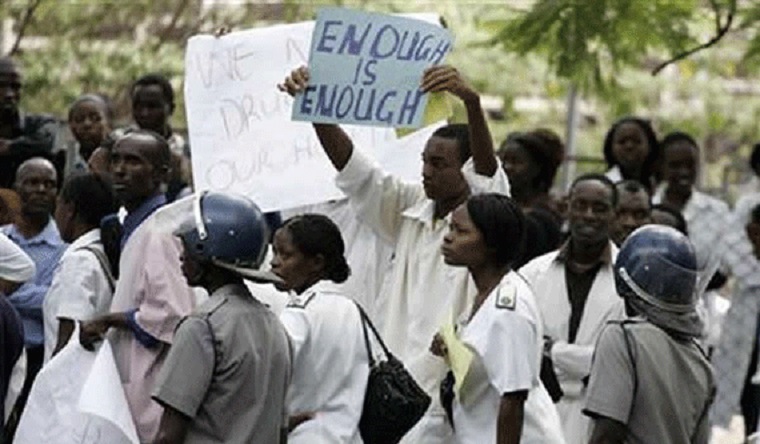Donors like the World Bank and the World Health Organization often urge developing countries to invest in national health systems.
But while rushing to construct clinics and other medical facilities in even the remotest regions may seem like a straightforward approach to ensuring universal health coverage, that has not turned out to be true.
The recent Ebola epidemic in West Africa highlighted the urgent need for stronger, more efficient, and more resilient health-care systems in developing countries.
But when countries rush to build more clinics, the resulting facilities tend to be hastily constructed and lacking in the equipment, supplies, and staff needed to deliver vital health services effectively.
In my frequent visits to rural areas of my native Sierra Leone, I have seen more than a few health facilities that communities could do without.
A newly refurbished facility in Masunthu, for example, had scant equipment and no water in the taps.
The facilities in nearby Maselleh and Katherie had cracked walls, leaky roofs, and so few cupboards that supplies like syringes and medical registers had to be stacked on the floor.
This situation is the direct result of a piecemeal and hurried approach to investment in health-care infrastructure.
At the end of the civil war in 2002, Sierra Leone had fewer than 700 health facilities, according to the 2004 Primary Health Care Handbook.
In 2003, the cash-strapped government decided to “decentralize” various public services to the district level, fueling fierce competition for limited resources.
Local councils, seeking to grab the biggest possible slice of the pie, began to push forward new projects, leading to rapid and uncontrolled expansion of the health system.
Today, Sierra Leone – with a population of just seven million – has nearly 1 300 health facilities.
The Ministry of Health has been unable to equip all of these new facilities and cover staff and operational costs, as its budget has not risen to match the system’s expansion.
In fact, very few (if any) of the African countries that signed the 2001 Abuja Declaration to allocate 15% of their budget to health have been able to do so.
Continued next page
(110 VIEWS)
